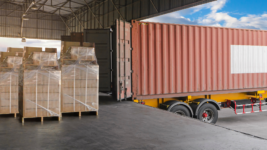Lately, it seems like our company has begun to lose a bigger portion of our inventory while our goods are in transit. Do you have any helpful hints on how we can reverse this trend?
Besides the growing problem of cargo theft, one of your biggest culprits could be the quality of your packaging and labeling.
If a pallet isn’t shrink-wrapped well enough, it’s easy for that wrapping to get compromised – and for individual cartons or boxes to fall out. Unless those cartons or boxes have been clearly labeled as part of a particular shipment, it can be difficult for drivers or loaders/unloaders to figure out which shipper or consignee those loose items actually belong to – especially in a fast-moving environment like an LTL terminal.
We’re pretty sure our labeling and packaging aren’t the issue.
Outstanding. Then let’s talk about your due diligence during hand-offs or deliveries.
When a delivery arrives, do you and your consignees simply sign for it with no questions asked? Or are you taking the time to carefully count and compare its exact contents against the Bill of Lading? That small but important task is often the key to catching and correcting an incomplete delivery before the truck leaves with one or more of your boxes, pallets, or items on board (or worse yet before it delivers it as part of someone else’s shipment).
Could long dwell times could also be part of our problem?
Well, it’s often been said that inventory at rest is inventory at risk. The longer any of your products sit on a loading dock or at a terminal, the more likely they are to get damaged or lost in the shuffle – or to become an attractive target for thieves.
Using premium/expedited services that keep your goods on the move–and that shorten the window between pick-up and delivery – could help reduce that exposure. So could using services with guaranteed delivery times, because these services often come complete with more robust tracking.
Any final suggestions?
Even the smartest and savviest of shippers tend to experience some degree of in-transit inventory shrinkage – although tactics like the above can help reduce it. With that in mind, don’t forget that cargo coverage is always a viable option, not to mention a wise one if the value of your products or the consequences of a lost item (like a missed delivery) are great.
If you’d like to learn more about this subject – or about its corollary, filing an effective claim for a lost or damaged shipment – drop us a line. Helping customers find more effective ways to deal with issues like OS&D is one of our favorite things to do, and we’d be delighted to hear from you.










